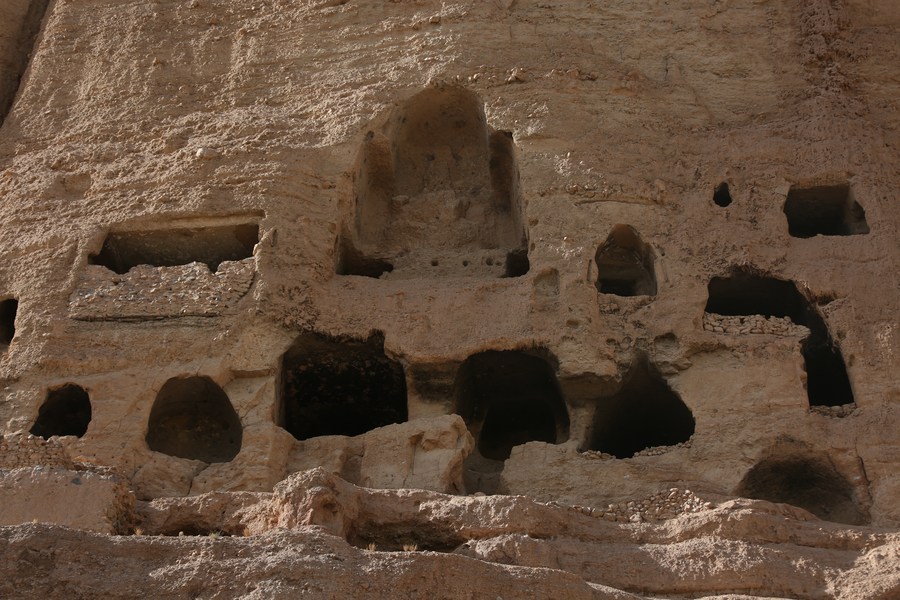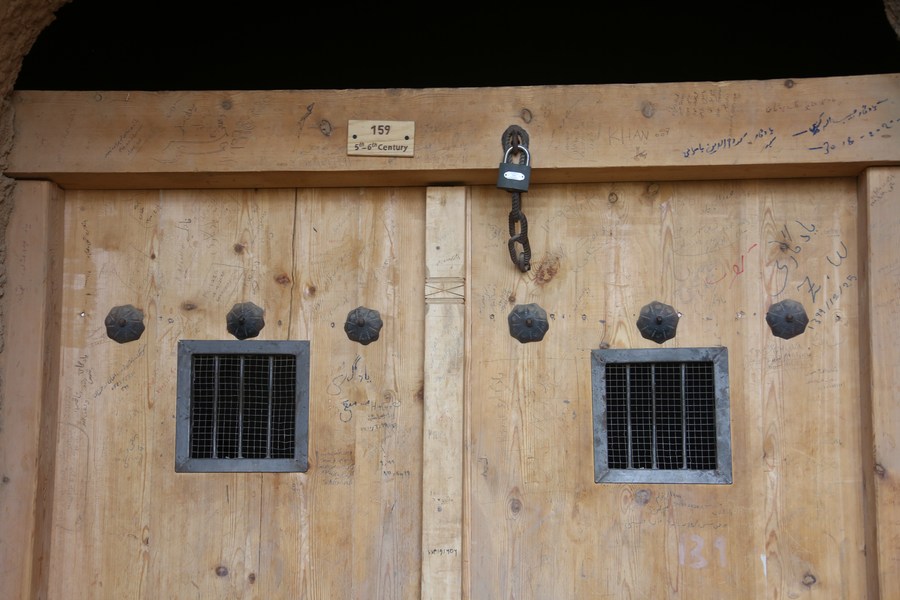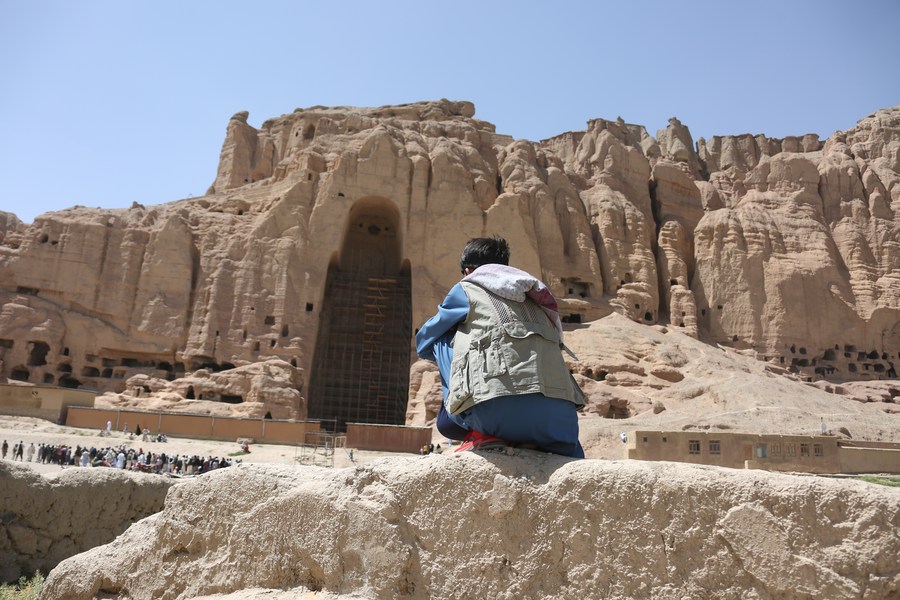The football game, held in front of the Buddha site recently in Afghansitan's Bamyan province, was organized with the help of Chinese scholars. It's aimed at conveying a message to the world and the entities supporting cultural heritages to protect the cultural treasures in Afghanistan.
Photo taken on July 10, 2022 shows the site of a giant Buddha statue in Bamyan province, Afghanistan. (Xinhua/Saifurahman Safi)
BAMYAN, Afghanistan, Dec. 4 (Xinhua) -- In central Afghanistan's Bamyan Valley where stands the famous Buddhas of Bamyan, Sayed Hassan Hussaini played his first football game since Taliban's takeover of Afghanistan in August last year.
"The game delivers the message of peace and friendship, underpinning the fact that we are peace-loving people," said Hussaini, who admitted he felt "sweeter" than ever when getting back to the football court in this war-torn country.
The football game, which was held in front of the Buddha site recently, was "organized with the assistance of our Chinese friends," said Hussaini, who expressed his gratitude to a group of young scholars from China's Peking University, Lanzhou University, Wenzhou University, the Central Academy of Fine Arts and the Hong Kong-based non-profit Friends of Dunhuang, who have funded the game.
 Photo taken on July 10, 2022 shows caves around the site of a giant Buddha statue in Bamyan province, Afghanistan. (Xinhua/Saifurahman Safi)
Photo taken on July 10, 2022 shows caves around the site of a giant Buddha statue in Bamyan province, Afghanistan. (Xinhua/Saifurahman Safi)
Bamyan province is famous for many cultural heritages, particularly the two well-known giant Buddhas. The 53-meter and 35-meter tall Buddha statues, with thousands of caves for monk statues around them, are more than 1,500 years old and also reminders of the Buddhist civilization in the region.
In 2003, the cultural landscape and archaeological remains of the Bamyan Valley were listed as a UNESCO World Heritage Site.
Thanking the Chinese scholars for holding the football game, Mohammad Taqqi Taqadosi, referee of the game and a professor of Bamyan University, pointed out that organizing such a game is vital to promoting awareness on how to protect cultural heritages.
"Our objective of the game is to convey our message to the world and the entities supporting cultural heritages to protect the cultural treasures in Bamyan," Taqadosi said.
"By organizing football matches, our message to the world is that we Afghans want to protect our cultural heritages and also want the world community to support us in achieving our goal," Ali Hussainyar, a local representative of the Chinese scholars, told Xinhua at the site of the game.
 Photo taken on July 10, 2022 shows a cave officially numbered and installed with an introduction nameplate around the Buddha site in Bamyan province, Afghanistan. (Xinhua/Saifurahman Safi)
Photo taken on July 10, 2022 shows a cave officially numbered and installed with an introduction nameplate around the Buddha site in Bamyan province, Afghanistan. (Xinhua/Saifurahman Safi)
Praising the Chinese scholars, Hussainyar said, "the Chinese support us financially and they also support us in preserving the cultural heritages in Bamyan."
Due to years of war and economic hardships, caves in Bamyan Valley were not properly numbered and have remained unattended for a long time, let alone being presented with an introduction. The situation that badly hindered heritage protection and further archaeological research has been reversed these days.
"With our specific suggestions and financial support, most of the caves near the Buddha site have been officially recorded numerically and installed with introductory nameplates," said Shao Xuecheng, a member of Friends of Dunhuang.
In addition, the Chinese scholars funded a program to teach local children how to preserve the cultural heritages. Kids from impoverished families were invited to attend training activities on relevant knowledge while awarded with the bonus of bread.
Source: Xinhua


